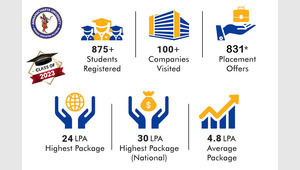Overview:
The Bachelor of Science in Agriculture / B.Sc. (Hons.) Agriculture is a four-year undergraduate degree program designed to provide students with a strong foundation in agricultural sciences and allied fields. The course integrates theoretical knowledge with practical training, covering diverse areas such as crop production, crop improvement, soil science, horticulture, plant protection, agricultural engineering, animal husbandry, biotechnology, agribusiness management, and extension education.
This program emphasizes sustainable farming practices, innovative technologies, and problem-solving approaches to address the challenges of food security, climate change, and rural development. Students gain hands-on experience through fieldwork, laboratory sessions, internships, and research projects, enabling them to apply scientific knowledge to real-world agricultural situations.
Graduates of B.Sc. Agriculture are equipped with the skills and competencies required for careers in government departments, research organizations, agribusiness industries, NGOs, and entrepreneurship in agriculture and allied sectors. With increasing demand for skilled professionals in agriculture, this course opens wide opportunities for students to contribute to the growth of the agricultural sector and the well-being of farming communities.





